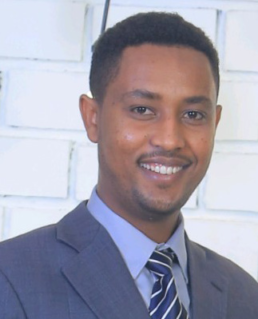
Long-standing state-building inadequacies are atthefoundationofEthiopia’spastwithviolence and instability. Diverging interpretations of the country’s political past, absence of social cohesion, and a lack of national consensus on signifcant state symbols and institutions are only a few of the issues. Ethiopia’s national dialogue is an opportunity to forge a new route toward peace, political tolerance, national unity, political and economic equality, and a shared destiny by expanding the debate about the country’s future beyond the traditional elite decision-makers. In general, the success of National Dialogues is dependent on widespread public support, availing information to the public, and importantly, media participation.
Media, arguably, plays a critical role in creating a well-informed public that gives credence to the process and outcome of National Dialogues. Two very different instances, Poland and Iraq highlight this critical point. While the media and public consultation activities in Poland (1990) signifcantly aided the overall dialogue process and contributed to a diversifcation of the political landscape and, eventually, a shift in power relations. In contrast, such critical roles were largely absent in Iraq (2004), limiting substantial input from opposition groups and civil society. Yemen (2013) demonstrates the immense diffculties of reaching ordinary citizens. Though Yemen had a well-developed media strategy and a designated body, the National Dialogue failed to catch the interest of the wider public. Thus, media, if properly utilized, can create public awareness and support for National Dialogue in all its phases.
The standing of the Ethiopian press is highly concerning. The reason for this, according to studies, is that the media landscape is more polarized than it has ever been and that portions of the media are being accused of having a negative role in the upheavals that have erupted across the country. It has been suggested that the trend seen in the media can be characterized as an enhanced ethnifcation process. As a result, ethnic membership and identity politics are becoming more important frames of reference in Ethiopian media discourse. Such a media climate is not favorable to conducting a successful National Dialogue.
The necessity of availing media outlets with varied viewpoints from multiple ethnic, political subscriptions and geographic locations on the National Dialogue greatly adds to its perceived legitimacy, rather than focusing on ethnic belongingness and identity politics.Benin(1990) is a good working example of this argument. The National Dialogue in Benin was aired live on radio, and photos of the sessions were published in the print media. The arguments were also recorded and made accessible on videotape. The Dialogue’s coverage increased public and civil society support by providing openness to the debatesandenabledBeninesecitizens, including those in rural regions, to stay informed about the most significant developments in the process.
Press freedom, according to experts, ensures that the media makes a substantial contribution to the National Dialogue. High levels of media monitoring and control in Sudan, for example, meant that the people had limited awareness of the national discussion and the drafting of peace deals. In Guatemala (1989), information on the progress and in the negotiation of agreements was not widely disseminated in the required languages. Increased buy-in and ownership among the people might be aided by an improved, and wider-spread distribution. This implies that the Ethiopian government must seek to promote media freedom to strengthen the media’s position in the National Dialogue at all levels.
It’s vital to remember that societal debate, as expressed in both social and conventional media, has an impact on discourse processes, whether we realize it or not. Even more constrained debate processes, however, are not immune to digital media since it is quick, easy to use, and can be used to monitor public opinion, all of which make it an appealing tool. The problem is that digital media material is diverse, and various negotiation parties’ ability to use digital media is unequal, which might lead to an imbalanced process. Furthermore, digital media may be a useful tool for individuals who want to disrupt or obstruct the process entirely. Whatever the dialogue process, digital media as a form of societal discussion has an enormous impact within a wider dialogue ecosystem.
The process of moral imagination requires being reflective of personal responsibility for political violence and acting towards transcending it and we do this by acknowledging the relational subjectivity we are in.It’s vital to remember that societal debate, as expressed in both social and conventional media, has an impact on discourse processes, whether we realize it or not.
The notion of hybrid media is a more complete approach to the complexity of the larger discourse ecology. We refer to hybrid media as the cohabitation and interaction of old and new media, which results in complicated fora for social debate. The concept’s main argument is that different media platforms should be viewed as parallel and merged, rather than as distinct and independent forms of societal communication. While social media is frequently highlighted in the mix, other media such as community radio, television, and newspapers may sometimes play just as essential a part in discussions, processes, as honing in on just one can lead to a lack of a balanced understanding.
The digital space, and the information therein, can be used to promote goals that are not compatible with the attainment of long-term peace; this might include propagation of hate speech or the dissemination of false information. Furthermore, the relevance of digital media must be understood in the perspective of a wider context, whether that context is the entire hybrid media complex or the conversion efforts. Thus, the Ethiopian government must subscribe to such communication and media concepts to arrive at a fruitful National Dialogue process.